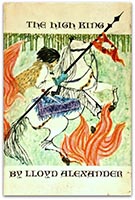Today is the Ides of March by the old Roman reckoning. It is, of course, most famous as the day of the year when Julius Caesar was assassinated, but long before that it was a day of special importance on the Roman calendar: the traditional start of the campaigning season, when the winter rains (and snows in high country) were over, and the ground was dry enough for Roman legionaries to march forth and hack Gauls, Etruscans, or Samnites to pieces. This was the Roman national sport before they conquered the whole of Italy and hired gladiators to do their hacking by proxy.
As the start of the season, it seems like a good day for this hack to report on recent doings. I have been fiddling about with various AI writing tools, some useless, some worse than useless, and some as silly as advertised. The fact is, large language models – LLMs – are not the ‘intelligence’ they are advertised to be. They can mimic human intelligence to the extent that they are trained from a corpus that includes the writings of humans who had something intelligent to say. When pressed beyond the bounds of their source data, or sometimes even when not pressed, they fall back upon bafflegab, vagueness, and a disturbing tendency to simply make things up.
I have found that the ‘AI’ programs with a chat-based interface are actually handiest for developing complex story scenarios, as they don’t try to make every scene self-contained, and I can choose to direct the story in promising ways as it goes along. For instance, I got one of these LLM tools to send my textual alter ego on a trip to the dangerous borderlands of a Viking kingdom. The program, obligingly serving up the distillation of decades of bilge-literature on that general subject, dropped hints indicating that I was, in fact, on an alternate Earth in the middle of the eleventh century. I struck up acquaintances with connections in the Varangian Guard, and made my way to Constantinople, where the real action was. I hope I may tell you a little of the situation it gave me, because it sheds interesting light on the strengths and weaknesses of these models.








Recent Comments